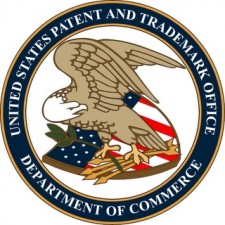Washington – The U.S. Department of Commerce’s United States Patent and Trademark Office (USPTO) today announced the start of two new regional pro bono patent programs in California and the District of Columbia—the result of the USPTO’s cooperative efforts with the California Lawyers for the Arts and the Federal Circuit Bar Association (FCBA).
The California program, run by California Lawyers for the Arts, will provide legal assistance to individuals and businesses throughout the region that might otherwise be unable to afford solid patent protection. The FCBA’s program will provide services to individuals and businesses in the Commonwealth of Virginia, the State of Maryland, and the District of Columbia.
“With these programs, qualifying independent inventors will have greater access to intellectual property counsel,” said Under Secretary for Intellectual Property and USPTO Director David J. Kappos. “The inventors stand to benefit from the improved access, and our examiners benefit by receiving better quality applications that they can examine more efficiently and effectively.”
The America Invents Act, signed into law by President Obama last year, tasked the USPTO to partner with intellectual property (IP) law associations and others to establish pro bono programs for financially under-resourced independent inventors and small businesses. The primary role of the USPTO in these partnerships is to offer insight, guidance, and training assistance to help lawyers provide the best possible IP legal advice to their clients.
[Inventors-Google]
This week, the FCBA also assumed the role as the “National Clearing House” for pro bono patent assistance, serving America’s innovator community by collecting information from interested individuals and businesses, providing an initial eligibility screening based on financial need and other factors, and forwarding the information on eligible applicants to a regional pro bono organization so a suitable attorney can be matched with the applicant.
The USPTO will assist partners like the FCBA and state IP law associations by providing an online application portal for pro bono program assistance, including an application, invention disclosure form, online seminar, and searchable list of programs in the various states.
To date, the USPTO has successfully helped create four pro bono programs across the nation and is partnering with other IP law associations to help an additional 10 get started by the end of 2013. Individuals and businesses interested in applying for pro bono patent assistance should visit the FCBA’s pro bono website, which includes request forms for applicants and patent attorneys interested in volunteering for pro bono patent assistance:http://www.fedcirbar.org/olc/pub/LVFC/cpages/misc/pto.jsp.
The start of the new pro bono programs coincides with the annual National Celebrate Pro Bono Week, first organized by the American Bar Association in 2009 to focus attention on the importance of providing equal access to justice for all, especially those who can least afford it, and to celebrate the outstanding work of lawyers who volunteer their services throughout the year—including those who help keep the American spirit of ingenuity alive by assisting independent inventors and small businesses in applying for patents.

![[IPWatchdog Logo]](https://ipwatchdog.com/wp-content/themes/IPWatchdog%20-%202023/assets/images/temp/logo-small@2x.png)

![[Advertisement]](https://ipwatchdog.com/wp-content/uploads/2024/04/Patent-Litigation-Masters-2024-sidebar-early-bird-ends-Apr-21-last-chance-700x500-1.jpg)

![[Advertisement]](https://ipwatchdog.com/wp-content/uploads/2021/12/WEBINAR-336-x-280-px.png)
![[Advertisement]](https://ipwatchdog.com/wp-content/uploads/2021/12/2021-Patent-Practice-on-Demand-recorded-Feb-2021-336-x-280.jpg)
![[Advertisement]](https://ipwatchdog.com/wp-content/uploads/2021/12/Ad-4-The-Invent-Patent-System™.png)







Join the Discussion
5 comments so far.
Gene Quinn
October 29, 2012 10:25 amBob-
This is what it says on the Federal Circuit Bar Association Page:
“Second, each applicant will be required to provide financial information so that a determination can be made that they qualify under the financial limits set by each regional program.”
My understanding is that the individual needs to be quite poor in order to qualify. So far this language is all that I can find. It is repeated on the USPTO website and various other websites. While it is rather non-informing I don’t think this program will be useful for those who are start-ups or small businesses. The goal (I believe) is not to take otherwise paying clients (or potentially paying clients) away from attorneys. The goal is to help those who are at or near the poverty line.
-Gene
Bob Zeidman
October 29, 2012 03:20 amDoes anyone know what specific criteria are being used to determine whether a person or business qualifies for pro bono patent work? I work with many individual inventors and startup companies who “might otherwise be unable to afford solid patent protection.” That’s just kind of vague. Otherwise they’d have to attempt to get another round of funding. Otherwise they would have to cut their salaries. Otherwise they just don’t want to be late for a mortgage payment. Otherwise they’d have to pay a patent agent to get a not-very-solid patent.
Mark Nowotarski
October 28, 2012 10:29 amThe University of Connecticut School of Law has a law clinic for CT inventors. Law students provide pro bono patent services under the direction of a registered practitioner. Details at http://www.law.uconn.edu/content/intellectual-property-and-entrepreneurship-law-clinic
Tom Gallagher
October 27, 2012 05:48 pmI don’t understand the patent pro bono program. Typically, pro bono legal service is provided to indigent criminal defendants. People applying for a patent are expecting to MAKE MONEY with the patent. I can understand a quasi pro bono – contingent fee arrangement, but why should I give free patent services to an inventor who then makes a lot of money on her invention? I have bills to pay too. Can I get a pro bono cell phone or a pro bono mortgage? Why should an inventor, would-be business person, entrepreneur get free patent services? How about pro bono small business loans that don’t need to be paid back?
The AIA essentially makes it more difficult for independent inventors and small businesses to get and keep patents. My guess is that this “pro bono” program is just a smoke screen to conceal the real intent of the AIA.
Tom Gallagher
October 27, 2012 05:31 pm“The California program, run by California Lawyers for the Arts, will provide legal assistance to individuals and businesses throughout the region that might otherwise be unable to afford solid patent protection.” As opposed to LIQUID or GASEOUS patent protection?